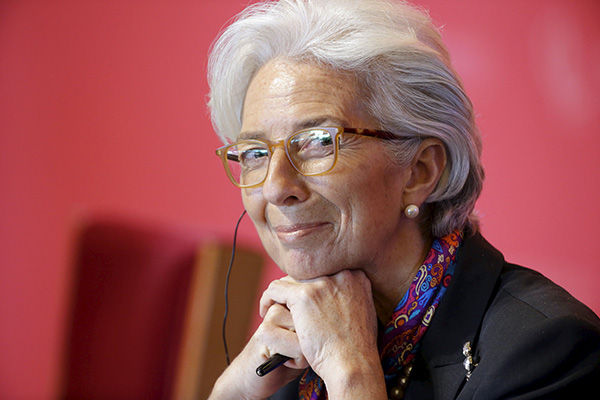 |
|
IMF Managing Director Christine Lagarde smiles as she attends the China Development Forum, in Beijing March 22, 2015. The International Monetary Fund will be "delighted" to cooperate with the China-led Asian Infrastructure Investment Bank (AIIB), said Lagarde on Sunday. [Photo/Agencies] |
China received critical support from the International Monetary Fund (IMF) and Asian Development Bank (ADB) on Sunday for a new Chinese-led multilateral lender.
Leaders of the IMF and ADB, speaking at a conference in Beijing, said they were in talks with or happy to cooperate with the Asian Infrastructure Investment Bank (AIIB), a $50 billion lender to be majority funded by China.
The United States has urged countries to think twice about signing up and questioned whether the AIIB will have sufficient standards of governance and environmental and social safeguards.
Some 27 countries have already signed up to participate in the AIIB, China's Finance Minister Lou Jiwei told China National Radio on Saturday. It will provide project loans to developing countries and is slated to begin operations at the end of this year.
The United States' key strategic allies in the region, Australia, Japan and South Korea, are also considering joining the proposed Beijing-based bank.
Early opposition to the AIIB from Western countries partially dissolved after Britain said this month it would join, with France, Germany and Italy swiftly following suit.
Canberra could formally decide to sign up to the AIIB when the full cabinet meets on Monday, Australian media have said.
At least eight more countries may join by the March 31 deadline, Jin Liqun, secretary-general of the interim secretariat establishing the AIIB, told a panel at the conference.
The fund will have approval from its shareholders at the start to double its capitalization to $100 billion, he said.
"China will follow the rules of the international community and will not bully other members but work together with them and try to reach consensus in all the decisions we make without brandishing the majority shareholder status," he said.